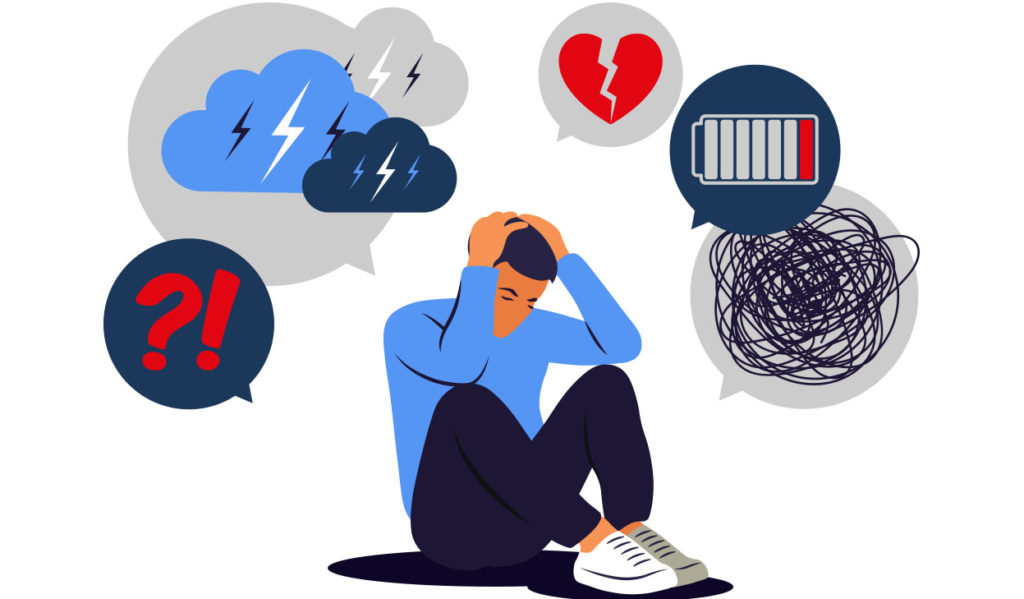
Drug and Alcohol Addiction in India is a rising problem since the last few decades that is having a profound impact on our society. We have a prominent party culture, where people live for the weekend, and their highlight of life is using substances either with their friends or by themselves. Substance abuse is becoming a part of daily life and is the new normal. Drug Addiction in Delhi, Mumbai, Pune and other major cities is also steadily increasing. The socioeconomic factors in our country also play a huge role in deteriorating mental health of our population. With more and more of people falling prey to substance abuse and dependence, we have a gradual increase in related mental health problems such as anxiety, depression, Obsessive compulsive disorders, and other issues. There a lot of treatment options available to different strata of society from clinics, outpatient programs, mental health centers and Rehabilitation Centers.
When it comes to Addiction, preventing relapses is one of the biggest goals in treatment. Relapse is a very real threat and people in recovery can experience a relapse within the first year or even years after treatment has finished. One needs to understand the dangers that are unique to the individual and why and under what conditions can they relapse. Any efficient treatment program involves individualized therapy techniques for preventing relapse, entailing short term and long term solutions. But understanding some common reasons and factors that contribute to a relapse is an important part of treatment. Here are some reasons for relapse:
1. Emotional Instability
Many of us act in accordance to our feelings and use feelings as a guidebook for our behavior. We are not taught how to process our emotions and many of us end up suppressing or not dealing with them efficiently. Doing this leads to prolonged emotional unmanageability and creates a burden of unresolved and unexpressed emotions. These emotions may resurface later when the triggers show themselves. Relapses happen when emotions such as anger, resentment, sadness, loneliness, guilt, frustration, hopelessness and so on are not processed and let go of efficiently.
2. Unmet needs
We all have different types of needs: physical, social, psychological, emotional, many of which go unnoticed in our day to day lives. Most people ignore or are not aware that they have needs for companionship, need for creativity, intellectual stimulation, physical affection, spontaneity or adventure, self expression. Many of these needs go unmet or we become disillusioned and think that we can only fulfill these needs through this particular person or experience. We either suppress or ignore them or seek to fulfill them through unrealistic means. Over a period of time this generates feelings of dissatisfaction, boredom, loneliness or frustration. This can be a potential contributing factor in why relapses happen. People need to be more mindful, introspective and reflect on the ways they are ignoring their needs or seeking them through situations or people that will not provide them, eventually finding a way to be one’s own source of meeting the needs.
3. Relationship or Family Issues
The people closest to us trigger us the most and in many ways, we hand over the keys of our state of mind to them. Our emotional stability, our peace of mind depends on their actions or words. Due to this, we become puppets to the negative or positive situations with our loved ones and this becomes a big factor in relapses. Here, the learning is to work on individual mental health and build emotional resilience so as we don’t become too disturbed by others. Also, to nurture the relationship with compassion and empathy and if help is needed to seek support through family or marital counselling. Working on communication patterns, emotional expression, kindness, acceptance of self and others, building trust and giving space are important skills in relationships.
There are of course multiple reasons and factors that are involved in relapses. Here we have just outlined three common ones which encompass many others. When it comes to managing relapses, therapy has to be individualized to the person’s expectations, needs, fears and capacity to implement the solutions. At ZorbaWellness Rehabilitation Center, located in Pune, our team of professionals works on providing short term and long term mental health solutions to prevent relapse. We use different tools to aid in relapse prevention therapy such as Sharing sessions, input sessions, identification of triggers, cathartic writing, distraction and relaxation techniques and processing techniques. Drug and Alcohol Addiction can be treated so as to help an individual live a more fulfilling life of recovery.
